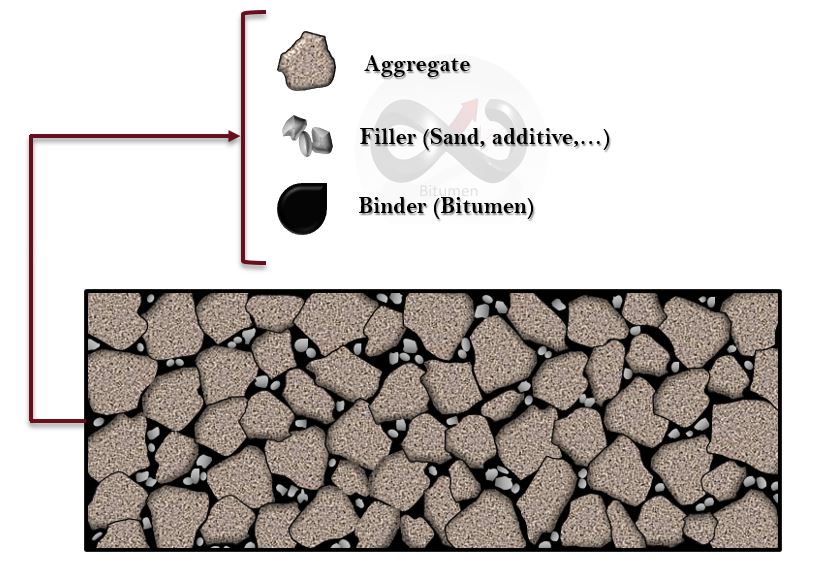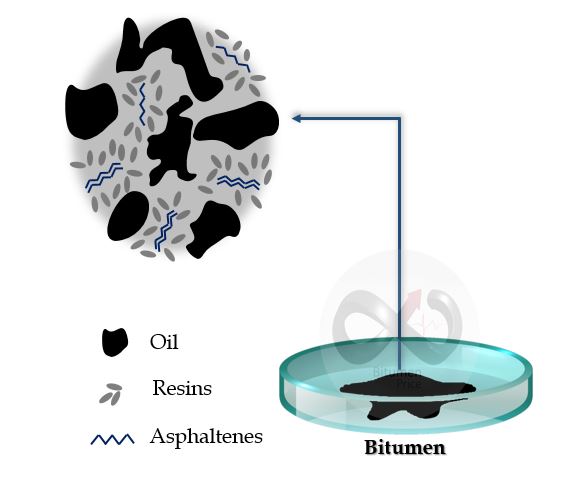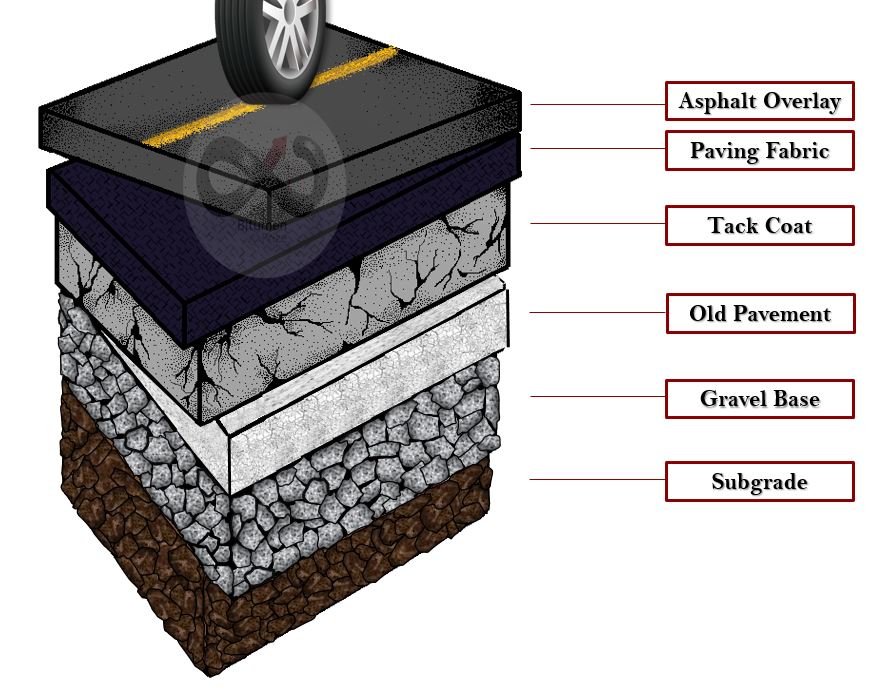Most of the time, social media, websites, or people use bitumen and asphalt interchangeably. Now, in this article, we are going to clarify the differences between asphalt and bitumen. To achieve this goal, it is better to give a brief explanation of each of them in the first place.
Asphalt:
Asphalt is a mixture of aggregates, fine grains, sand, stone dust, bitumen, and some additives. Indeed, aggregates are the largest material in asphalt. Furthermore, they made up about 92 to 96% of the mass of asphalt. Therefore, the mineralogy, type, size, and properties of the aggregate will affect the performance of asphalt. On the other hand, about 5% includes bitumen. Although this material is a small percentage, it plays an important role. In other words, bitumen acts as a durable adhesive and binder in asphalt and also gives viscoelastic properties to it.
Three groups of aggregates in asphalt :
- Natural aggregates: Aggregates that are obtained from mineral sources and have undergone only mechanical processing. Sometimes we call them “primary aggregates”. Sand and gravel are two examples of this group.
- Manufactured aggregates: they have a mineral origin, too. Mostly they go under industrial processes like thermal ones.
- Recycled aggregates: We obtain them from inorganic or mineral material processing which was used in construction.
*Note that these aggregates must be tough, clean, and have high tolerance in different conditions.
Factors affecting the brittleness of asphalt:
In brief, the presence of aggregates with high porosity and bitumen with a strong tendency to seep can cause the asphalt to harden faster and also cause cracks in the asphalt pavement.

Bitumen:
According to the picture, it is a liquid binder that holds asphalt aggregates together. Genuinely, bitumen is a material that will soften if we heat it, on the contrary, will harden if it is cold. Moreover, High viscosity, black color, and high adhesion are some of its properties. In fact, Bitumen is one of the petroleum products in which lighter fractions are removed. Accordingly, more than 80% of bitumen is carbon and hydrogen.

Notation:
- Sometimes, people refer to asphalt as tarmac, which is completely wrong. In actuality, tarmac is a short form of tarmacadam, so they are completely different.
- Asphalt has three types: lake asphalt, rock asphalt, and buton asphalt. Each of them has its own definition and application.
- Be careful, when you work with bitumen and asphalt, you should use appropriate barrier creams to protect the skin of the part that is in contact with them, especially hands and fingers. Also, wash your skin well after the operation and before eating or drinking.
- We use bitumen and asphalt for some purposes, such as covering reservoirs, roads, streets, airports, and dams.
- Asphalt can be a subset of “asphaltene”, but they are not the same.
Conclusion:
– In a word, asphalt is a term that generally refers to a wide range of road surface dressing products that mainly contain bitumen and mineral aggregates.
– Bitumen is a black-colored material that contains hydrocarbons and we can produce It through the refining of crude oil.
– One of the most important differences between asphalt and bitumen, is that, unlike bitumen, asphalt is not produced by refining the crude oil. Most of the time, it includes light components. Thereafter, this leads to losing a high amount of mass when we heat the asphalt.
– We use, approximately, 85% of produced bitumen in asphalt for road construction. Moreover, about 5% of the mass of asphalt is bitumen, and 95 % consists of mineral aggregates and other finer materials like limestone.
– By all means, bitumen and asphalt are two separate words that can be complementary.

This text showed a small part of the differences between asphalt and bitumen. We hope it was useful for you.
Our company does its best to provide customers with the best quality bitumen. Please contact us if you have any questions.
Rate This Article

